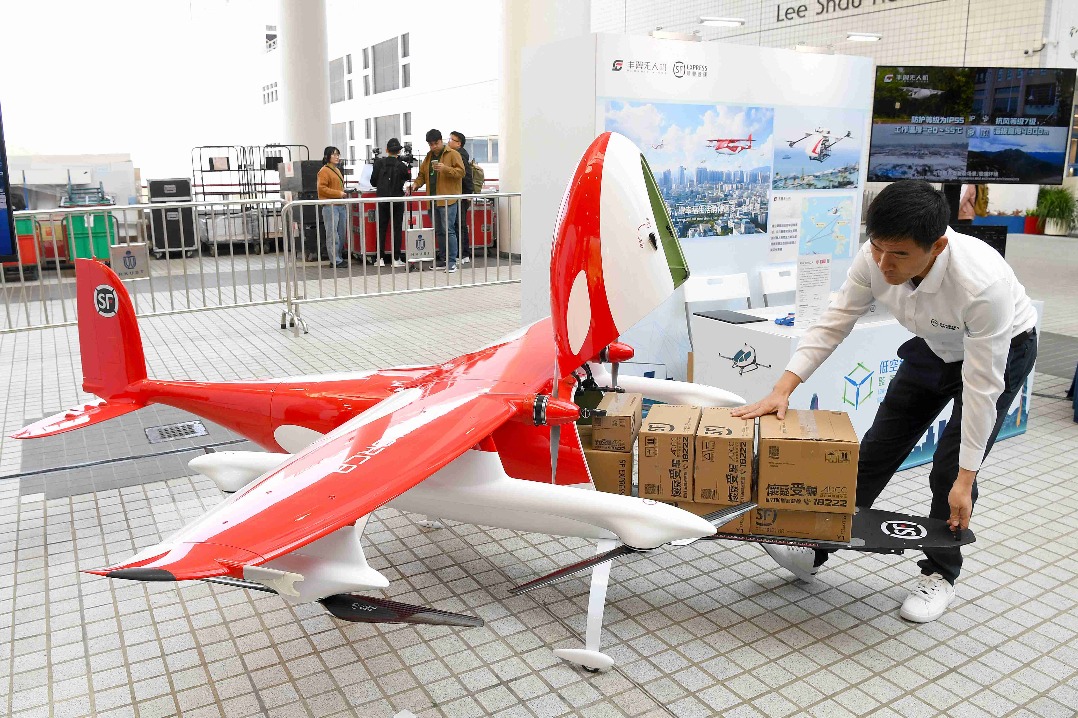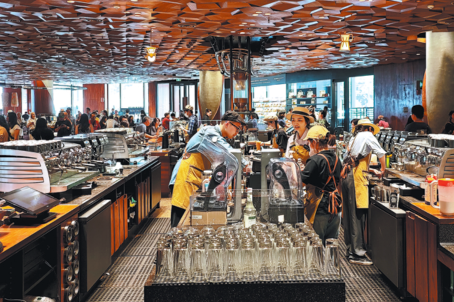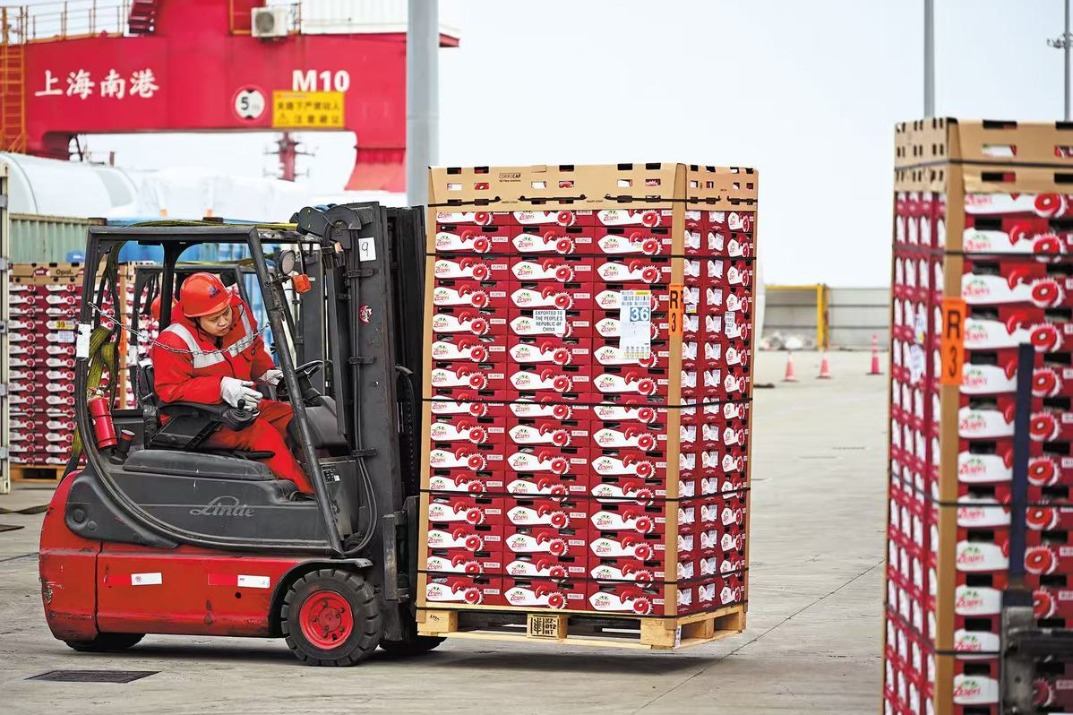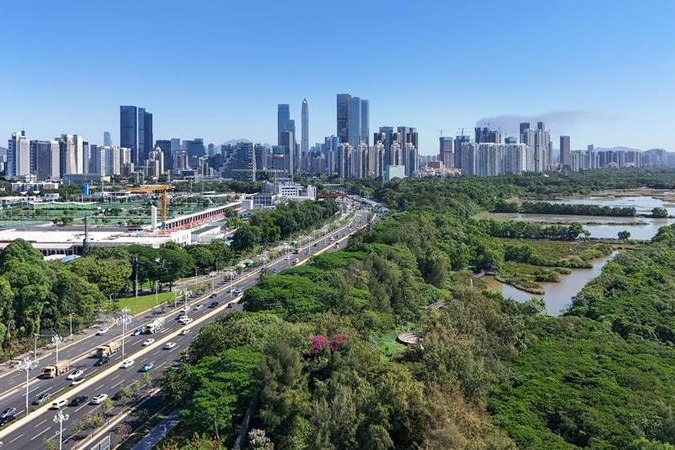RCEP set to help stabilize global trading system
Forum:?Accession process for applicants underway

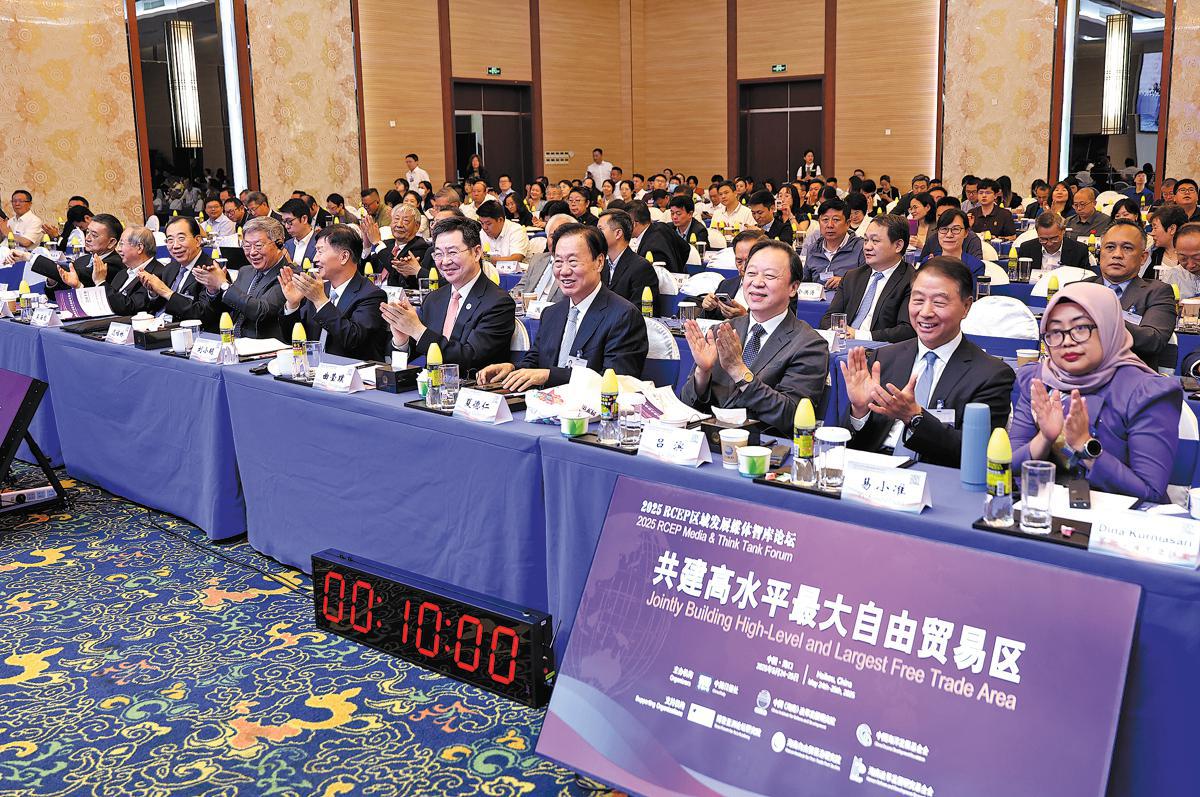
The advancement of the Regional Comprehensive Economic Partnership agreement to a higher level and toward broader coverage will bolster economic growth in the Asia-Pacific region and help stabilize a fracturing world trade system, officials and experts said on Sunday.
The mega trade pact, covering 30 percent of the world's total population and economic output, should play an even more significant role in championing free trade and mutual benefits as headwinds buffet the global economy, they said at the 2025 RCEP Media and Think Tank Forum held in Haikou, Hainan province.
The forum, themed "Jointly Building High-Level and Largest Free Trade Area", was organized by China Daily, the China Institute for Reform and Development and the China Oceanic Development Foundation.
"Unilateral protectionism and hegemonic bullying are wreaking havoc worldwide," said Hainan Governor Liu Xiaoming. "Yet the RCEP is injecting robust momentum into the economic integration of the Asia-Pacific, presenting member states with new market opportunities and bolstering the international community's confidence in multilateralism."
Hainan, as a free trade port, will fully leverage its existing policies to integrate with the rules of the RCEP, Liu said, adding that the province will turn itself into a crucial hub that facilitates market connectivity, factor mobility, rule coordination and industrial chain cooperation between China and other RCEP member economies.
"In the face of an increasingly uncertain and volatile global landscape, the steady progress of RCEP implementation has become even more precious," said Qu Yingpu, publisher and editor-in-chief of China Daily.
"Redoubling our efforts to push forward regional integration and economic globalization is essential for shaping a community with a shared future for mankind," Qu said, adding that the RCEP member economies should work together to build a regional community for scientific and technological innovation.
Harnessing the synergies of artificial intelligence-enabled joint research and cooperative networks among RCEP members will greatly enhance the collective capacity for innovation and smart development, he said.
The RCEP — the world's largest free trade pact, which is aimed at gradually eliminating tariffs on over 90 percent of goods traded among its 15 members — serves as a critical counterweight to the United States' blanket tariff hikes targeting global economies.
Last year, the total trade volume among RCEP members reached $5.7 trillion, up 2.5 percent year-on-year, according to a report released at the forum.
China, as a key player of the RCEP, has been making cutting-edge AI capabilities available both domestically and globally, with DeepSeek, a cost-effective and open-source large language model developed at a mere fraction of the cost of comparable US models, being a prime example.
"Looking ahead, an RCEP with higher standards, a broader scope and more inclusive development will surely inject certainty into the global economy," said Chi Fulin, president of the China Institute for Reform and Development.
At present, the RCEP comprises the 10 member states of the Association of Southeast Asian Nations, as well as China, Japan, South Korea, Australia and New Zealand. China's Hong Kong Special Administrative Region, Sri Lanka and Chile have submitted applications seeking accession to the RCEP.
Chi said that Hong Kong's accession would not only boost growth of regional trade, but also drive regional financial development and enhance the internationalization of regional industries. If Chile joins the group, it would mark an upgrade of the RCEP from a purely regional arrangement to a cross-regional one, he added.
Secretary-General of ASEAN Kao Kim Hourn said, "The growing interest from potential applicant countries and regions represents a powerful testament to our commitment to maintaining an open and inclusive agreement."
He added that relevant parties are working diligently to finalize the details of the accession process as expeditiously as possible.
Meanwhile, the full completion of negotiations on the Version 3.0 China-ASEAN Free Trade Area and the accelerating negotiations for the China-Japan-South Korea Free Trade Agreement are also converging to open up more opportunities for regional growth.
Lyu Bin, president of the China Oceanic Development Foundation, called for efforts to construct a platform for cooperation on the blue, or marine economy, helping RCEP member nations to identify their comparative resource advantages and optimize the layout of their marine industries.
wangkeju@chinadaily.com.cn




















